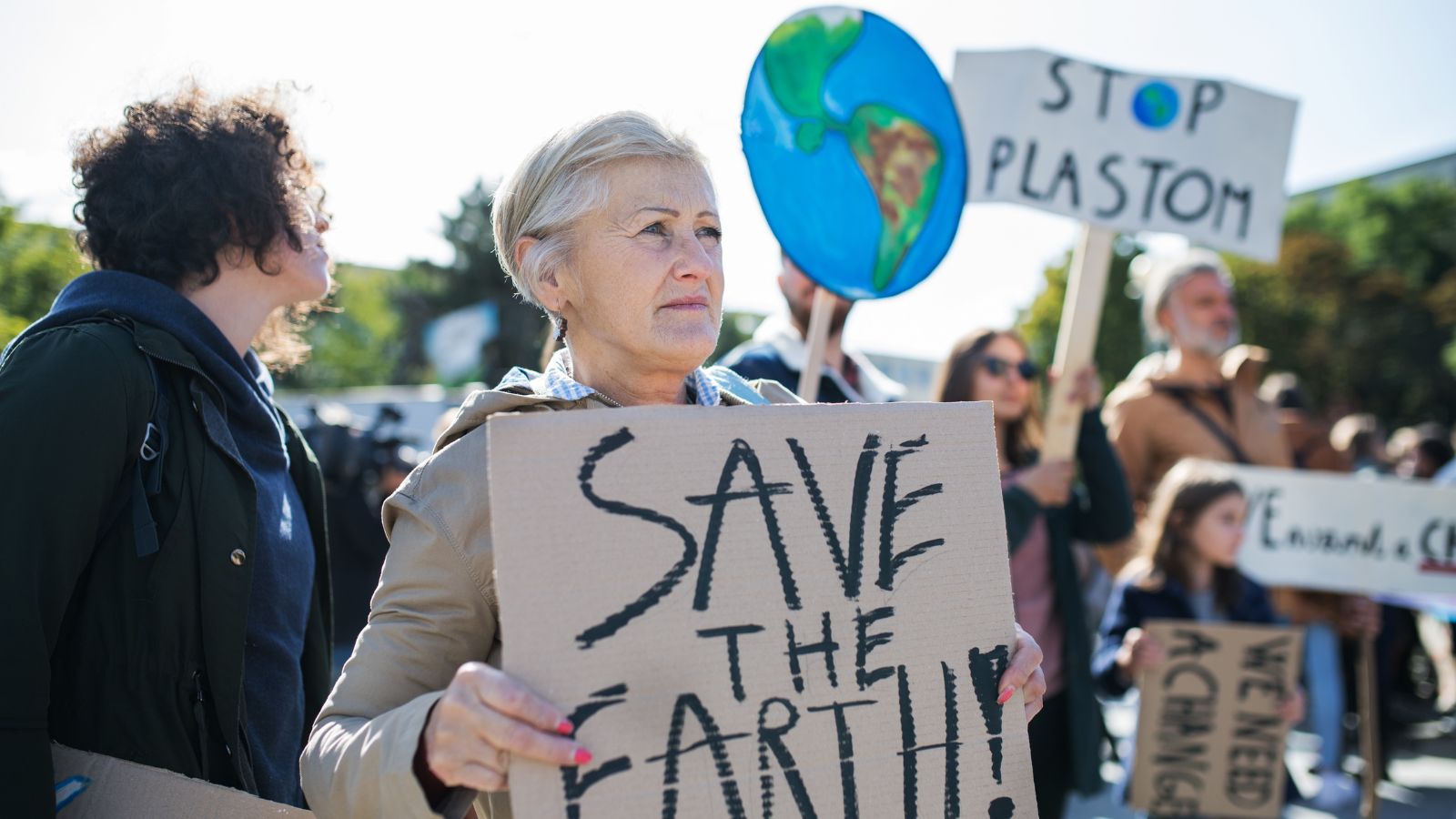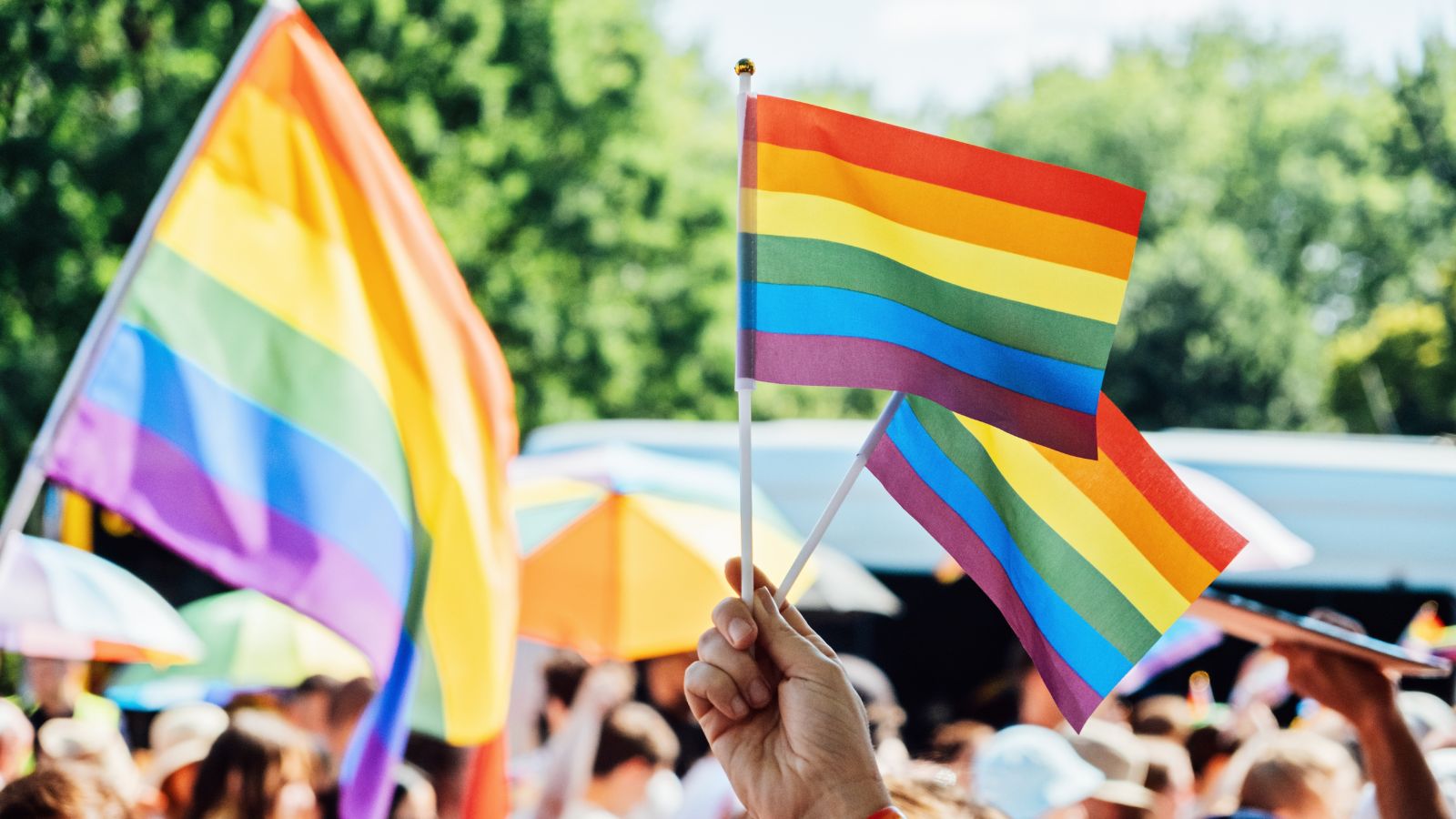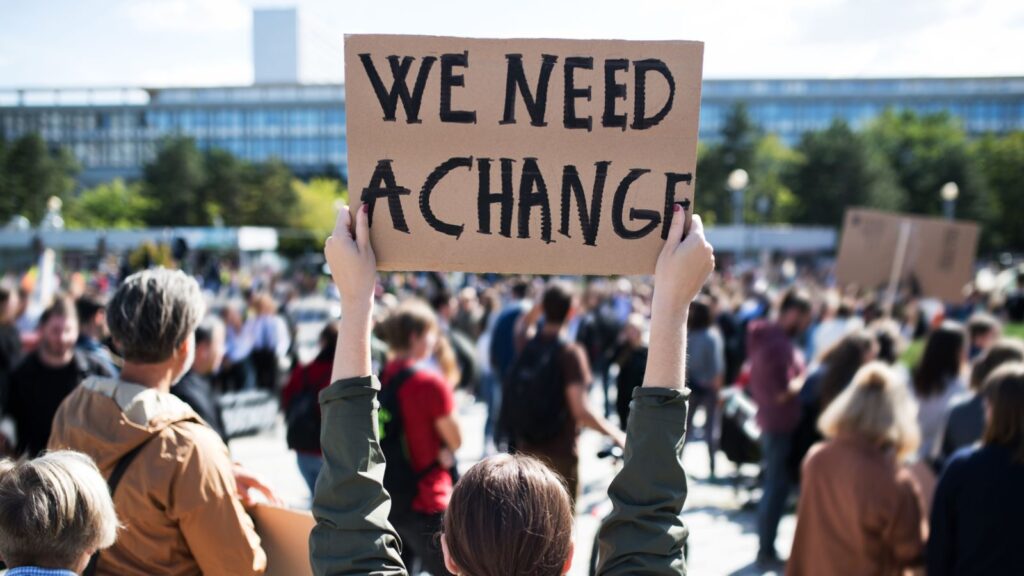In recent years, the concept of being ‘woke’ has sparked plenty of debates. It’s a term originally used to describe awareness of social injustices, but it’s grown to encompass a range of behaviours and attitudes that some people see as progress, while others view them as problematic. These are 17 woke behaviours changing everything.
Embracing Inclusivity

According to Forbes, “inclusion is significantly more important than diversity.” From gender-neutral bathrooms to diverse representation in media, inclusivity aims to ensure everyone feels seen and valued. It encourages businesses, schools, and communities to consider and accommodate people from all walks of life.
Cancel Culture

Cancel culture is perhaps the most contentious woke behaviour, as it involves calling out and boycotting individuals or companies deemed to have behaved inappropriately or offensively. Proponents see it as a way to hold powerful figures accountable. However, detractors believe it can lead to mob justice, with careers and reputations being destroyed based on public opinion.
Pronoun Awareness

The push for pronoun awareness aims to respect individuals’ gender identities by using their preferred pronouns. This practice is becoming more common in workplaces, schools, and social settings. Supporters argue it’s a simple way to show respect and acceptance. Critics, however, sometimes feel it complicates communication.
Deconstructing Historical Narratives

Many woke activists are focused on re-examining history, particularly how it’s taught and celebrated, and this includes removing statues of controversial figures and renaming buildings or holidays. Advocates say this helps address historical injustices and promotes a more accurate understanding of the past.
Social Media Activism

Social media has become a powerful tool for woke activism, enabling rapid mobilisation and spreading awareness of social issues. Hashtags, viral posts, and online campaigns have brought significant attention to causes like #MeToo and Black Lives Matter. While this has led to meaningful change, critics argue that it can encourage performative activism, where people show support online without taking real-world action.
Promoting Mental Health Awareness

Woke culture has also highlighted the importance of mental health, reducing stigma and encouraging open conversations. This has led to more accessible mental health resources and support in workplaces and schools. While widely seen as a positive change, some people feel the emphasis on mental health can lead to overdiagnosis.
Advocating for Climate Action

Environmental activism is another area where new behaviours are evident, as there’s a growing focus on sustainable living, reducing carbon footprints, and holding corporations accountable for environmental damage. Supporters believe this is crucial for the planet’s future, yet some critics argue it can lead to extreme measures.
Championing Diversity in Media

Woke movements demand greater diversity in film, TV, books, and other media. This includes casting actors of various ethnicities, genders, and sexual orientations and telling stories from diverse perspectives. Advocates argue this creates a more inclusive and representative media landscape. However, some feel it leads to tokenism.
Emphasis on Safe Spaces

The concept of safe spaces is designed to provide environments where people can feel secure and free from discrimination or harm. These are common in educational institutions and online communities. Proponents believe they’re necessary for marginalised groups to thrive. Critics, however, argue that they can stifle free speech and debate.
Critiquing Capitalism

Many woke individuals are critical of capitalism, pointing out its role in perpetuating inequality and environmental destruction. There’s a push for alternative economic models that prioritise social and environmental wellbeing. While this critique is seen as necessary by some, others argue that capitalism drives innovation and prosperity.
Advocating for Animal Rights

Awareness culture has also brought animal rights to the forefront, with increased information about animal cruelty and the benefits of veganism. This has led to changes in laws and a rise in plant-based diets. Supporters believe this is crucial for ethical and environmental reasons, while critics argue it can be extreme and overlook cultural practices and personal freedoms.
Redefining Family Structures

Traditional notions of family are being re-evaluated, too, with increased acceptance of non-traditional structures like single-parent families, same-sex parents, and communal living. Advocates argue this reflects the diversity of modern society and supports all forms of love and caregiving. Detractors worry that it undermines the traditional family unit and its perceived stability.
Embracing Intersectionality

Intersectionality recognises that various social identities (race, gender, class, etc.) intersect and create unique experiences of oppression or privilege. This concept is central to woke thinking and aims to address complex layers of discrimination. While many see it as a comprehensive approach to social justice, others find it overly complicated and divisive.
Supporting Gender Fluidity

Gender fluidity challenges the binary view of gender, recognising that some people do not fit strictly into male or female categories, and this has led to more acceptance of non-binary and genderqueer identities. Proponents argue it allows individuals to live authentically, while critics often find it confusing and at odds with traditional gender norms.
Anti-Racism Education

Woke culture promotes anti-racism education, encouraging people to actively understand and combat racism in all its forms. This involves workshops, training sessions, and curriculum changes. It’s either seen as essential for creating an equitable society or divisive due to promoting a victim mentality.
Deconstructing Beauty Standards

The movement also targets traditional beauty standards, promoting body positivity and acceptance of all body types, skin tones, and features. This has led to more diverse representations in fashion and media. While many celebrate this shift, critics argue that it sometimes celebrates unhealthy lifestyles or lowers standards in industries like modelling.
Ethical Consumerism

Finally, woke culture encourages ethical consumerism, where people make purchasing decisions based on a company’s social and environmental practices. This includes boycotting companies with poor records and supporting fair trade and sustainable products. Advocates see it as a way to drive positive change, while critics argue it can be impractical and economically damaging.







